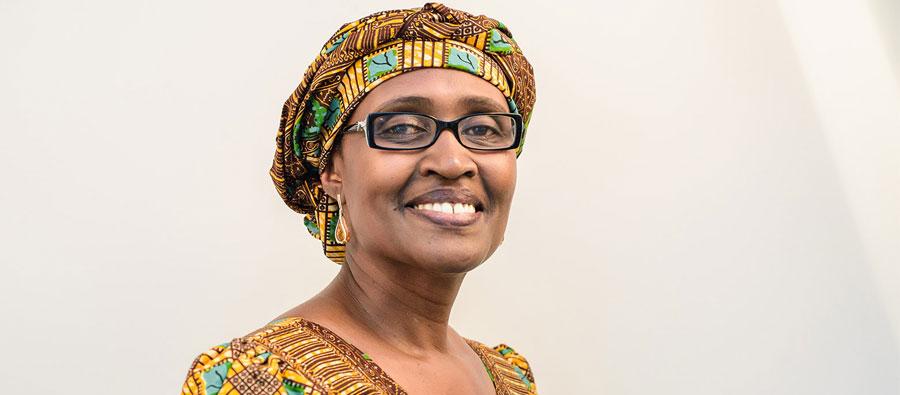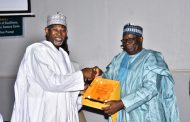 The question is how would Africa fare should growing fear that capitalism could collapse become a reality? There is no such likelihood immediately but the fears and correctional moves being made cannot be for nothing. Who and where is Africa’s future being planned and what is the direction of the plans, if they are there at all? Still lost in the challenging tasks of state and nation building, is most of Africa in a position to interrogate collective existence in anticipation of systemic collapse and survival of such unraveling?
The question is how would Africa fare should growing fear that capitalism could collapse become a reality? There is no such likelihood immediately but the fears and correctional moves being made cannot be for nothing. Who and where is Africa’s future being planned and what is the direction of the plans, if they are there at all? Still lost in the challenging tasks of state and nation building, is most of Africa in a position to interrogate collective existence in anticipation of systemic collapse and survival of such unraveling?
The fear that global capitalism could collapse is gaining ground across the Western world, complete with observable correctional efforts but that does not appear to be the case in what used to be called the ‘Third World’ where poverty and tension have enveloped much of reality. The earliest of the alarm bells might be traced to when an American weekly said in 1997 that the world was actually looking for a new Karl Marx although it said it should be a less troublesome one this time. Connected to the magazine’s lamentation that the world was facing uninspiring leadership based on its own assessment of each of the leaders of the G8 at that time, readers took the alarm to mean a leadership that is a critique of capitalism.
Two decades thereafter during which the world witnessed two financial crises – 1997 and 2008 – the fear appears powerfully back again. The New York based Institute for New Economic Thinking, (INET), for instance, has cobbled together an Independent Commission on Global Economy. Instructively, INET is, acting with support from the Ontario, Canada based Centre for International Governance Innovation, (CIGI). Described as the first of its kind, the commission is to be co-chaired by two Nobel Laureates on Economics, Prof Joseph Stiglitz, a former Chief Economist of the World Bank and Michael Spence, a doyen of American elite universities. Along with a team described as of leading thinkers, the commission embody a clarion call for new thinking and new rules for the world economy.
The commission is coming into being taking note of how developing countries are searching for pathways to prosperity in the wake of rising populist tendency in the developed world, challenges such as widening inequality, technological disruption and climate change, how these challenges are compounded by what INET sees as ineffectiveness of current policy tools, the interrogation of the state, of civil society and of individuals as well as national and international governance frameworks. Subsequently, the commission will be cracking brains on slow and stagnant growth in advanced economies; continuing inadequacies with the international financial system; disruptions to work, especially from new technology; widening income and wealth inequality in the face of globalization and technological disruption.

Development as chaos somewhere in Africa
Others are political and social polarization resulting from economic and governmental failures to deliver inclusive prosperity; trade and the ineffectiveness of traditional development strategies for emerging economies, given the changes in technology and global supply chains; climate change and increased migration, often driven by despair caused by economic and political disruption in developing countries, unresponsive governments, slow job growth and climate change.
Still in its own words, joining the Commission are some of the world’s leading economists, policy experts and thought leaders. They include: Robert Johnson, President of INET and Former Chief Economist of the U.S. Senate Banking Committee; Lord Adair Turner, Chairman of INET and former chairman of the UK Financial Services Authority; Nelson Barbosa, Professor of Economics at the São Paulo School of Economics of the Getulio Vargas Foundation, Adjunct Professor at the Federal University of Rio de Janeiro, and former Brazilian Minister of Finance; Kaushik Basu, Professor of Economics at Cornell University and former Senior Vice-President and Chief Economist of the World Bank; Peter Bofinger, Professor of Monetary and International Economics at Würzburg University and a member of the German Council of Economic Experts; Winnie Byanyima, Oxfam International executive director; former member of the Ugandan Parliament, African Commission and Director of Gender and Development at the United Nations Development Program.
Others are Mohamed El-Erian, Chief Economic Advisor, Allianz, and former chair of U.S. President Obama’s Global Development Council; Dr Gaël Giraud, Economist and senior researcher at C.N.R.S. (French national center for scientific research); James Manyika, Director of the McKinsey Global Institute; Rohinton Medhora, President of the Centre for International Governance Innovation (CIGI); Danny Quah, Professor of Economics at the Lee Kuan Yew School of Public Policy, National University of Singapore; Dani Rodrik, Professor of International Political Economy at Harvard’s John F. Kennedy School of Government, and President-Elect of the International Economic Association; Eisuke Sakakibara, Professor of Economics at Keio University and former Japanese Vice Minister of Finance for International Affairs; Beatrice Weder di Mauro, Distinguished Fellow in Residence at Emerging Markets Institute of INSEAD Singapore, Professor of Economics, Chair of Economic Policy and International Macroeconomics at the University of Mainz, Germany and former member of the German Council of Economic Experts and Yu Yongding, former president of the China Society of World Economics and director of the Institute of World Economics and Politics at the Chinese Academy of Social Sciences; former member of the Monetary Policy Committee of the People’s Bank of China.

Prof Joseph Stiglitz, a co-chair of the commission
Here is a global attempt to the extent that every part of the world is included but mainly from the leading think tanks, former government ministers, scholars/researchers and INGOs.
Opinion pieces in Western media are more categorical about the imminence or inevitability of the collapse of capitalism. In the piece in part 2 of this feature, in the UK based Independent, (Nov. 7th, 2017 under the title: 100 years on from the Russian Revolution, could a 21st century revolt bring about the end of capitalism?), the author concludes his survey by flatly declaring that it is not a matter of whether capitalism will eventually give way but a question of what would replace it. In other words, INET’s Independent Commission on Global Economy could be understood as working towards a less disruptive collapse of capitalism by what Winnie Byanyima, the Ugandan born UN technocrat and, to all intents and purposes, Africa, INGOs and gender’s quota on the commission is saying on their task:
“Nothing short of a ‘Global Economic Transformation’ is needed to urgently reverse a long-term global inequality crisis and build a more human economy that benefits everyone, not the privileged few. It is my honor to join this esteemed Commission on behalf of Oxfam and to amplify the voices of those people we work with facing poverty – most of all women across the South. We must advance the ideas that lead to fairer societies in which work is dignified, taxation is fair, where businesses work in the interests of workers and producers, and in which governments are truly accountable to their people.”




























